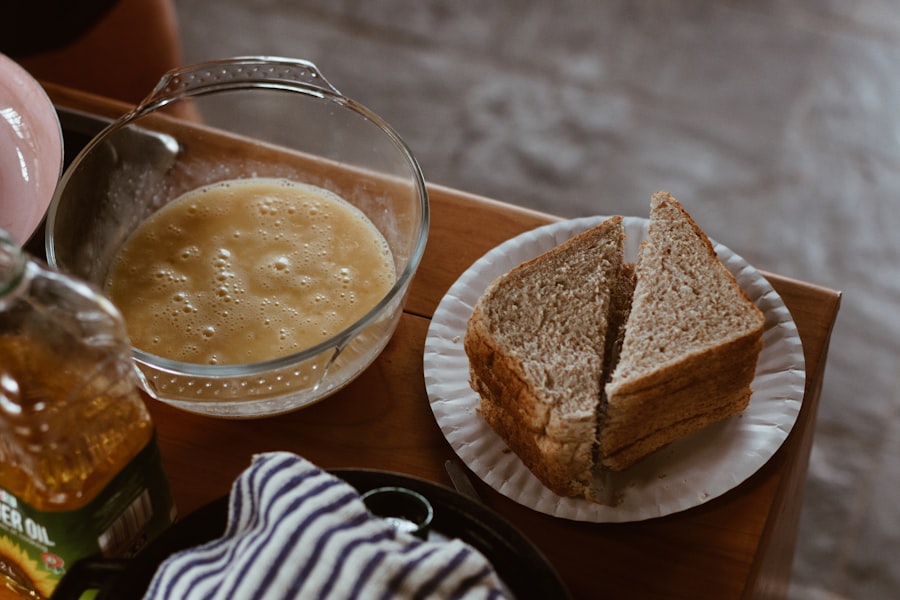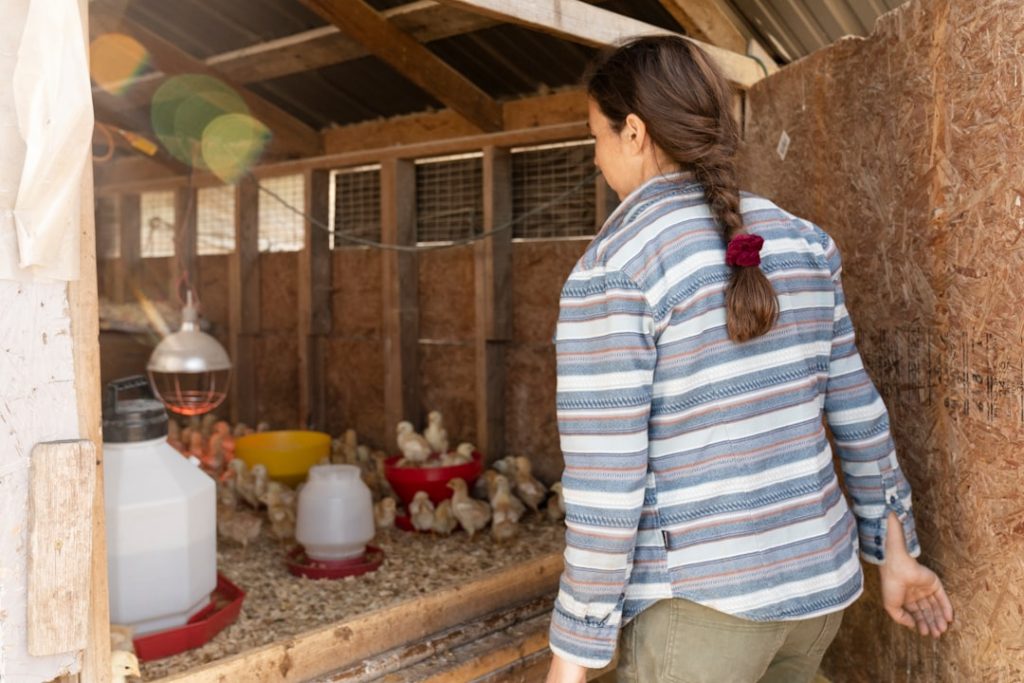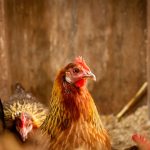Egg laying chickens, also known as laying hens, are domesticated birds that are specifically bred for the purpose of laying eggs. They are a vital part of the poultry industry and are raised in large numbers all over the world to meet the demand for eggs. These chickens come in various breeds, each with its own unique characteristics and egg-laying capabilities.
Some popular breeds include the Rhode Island Red, Leghorn, and Plymouth Rock. Egg laying chickens are typically raised in commercial egg production facilities, as well as on small-scale farms and backyard settings. Egg laying chickens are known for their ability to produce a large number of eggs throughout their productive years.
They are valued for their high-quality protein-rich eggs, which are a staple in many diets around the world. These chickens are relatively low maintenance and can thrive in a variety of environments, making them a popular choice for both commercial and small-scale egg production. In addition to their egg-laying abilities, many people also keep egg laying chickens as pets for their friendly and sociable nature.
Overall, egg laying chickens play a crucial role in providing a sustainable source of nutritious food for human consumption.
Table of Contents
- 1 Lifespan of Egg Laying Chickens
- 2 Productivity of Egg Laying Chickens
- 3 Factors Affecting the Longevity of Egg Laying Chickens
- 4 Caring for Aging Egg Laying Chickens
- 5 Retirement of Egg Laying Chickens
- 6 Conclusion and Final Thoughts
- 7 FAQs
- 7.1 How long do egg laying chickens live?
- 7.2 How long do egg laying chickens lay eggs?
- 7.3 What factors can affect the lifespan of egg laying chickens?
- 7.4 What can be done with egg laying chickens after they stop laying eggs?
- 7.5 How can egg laying chickens be cared for to ensure a longer lifespan?
Key Takeaways
- Egg laying chickens are specifically bred for their ability to produce eggs, and are a common choice for small-scale and backyard poultry farming.
- The average lifespan of egg laying chickens is around 5-7 years, with peak egg production occurring in the first 2 years of their life.
- Factors such as nutrition, housing, and genetics can significantly impact the productivity of egg laying chickens.
- Proper care, including regular health check-ups, a balanced diet, and a comfortable living environment, can help extend the longevity of egg laying chickens.
- As egg laying chickens age, they may require special attention and care, including adjustments to their diet and living conditions to ensure their comfort and well-being.
Lifespan of Egg Laying Chickens
Factors Affecting Lifespan
The lifespan of egg laying chickens can be influenced by various factors, such as breed, diet, housing conditions, and healthcare. Some breeds are known for their longevity and may continue to lay eggs well into their later years, while others may have a shorter productive lifespan.
Extending Lifespan through Proper Care
Providing a balanced diet, a clean and comfortable living environment, and regular veterinary care can all contribute to extending the lifespan of egg laying chickens. Overall, proper care and attention are essential for ensuring that these birds live a long and healthy life.
Importance of Proper Care
As they age, their egg production gradually declines, and they may eventually stop laying altogether. Therefore, it’s crucial to provide egg laying chickens with the necessary care and attention to ensure they live a long and healthy life.
Productivity of Egg Laying Chickens

Egg laying chickens are most productive during the first few years of their life, with peak egg production typically occurring between 6 months to 2 years of age. During this time, hens can lay an impressive amount of eggs, with some breeds capable of producing over 300 eggs per year. However, as they age, their egg-laying capabilities gradually decline, and they may produce fewer eggs or stop laying altogether.
The productivity of egg laying chickens is influenced by various factors, including genetics, nutrition, lighting, and environmental conditions. Selective breeding has led to the development of high-producing egg laying chicken breeds that are specifically bred for their egg-laying abilities. Additionally, providing a well-balanced diet rich in essential nutrients, maintaining proper lighting conditions to stimulate egg production, and ensuring a comfortable and stress-free environment can all contribute to maximizing the productivity of egg laying chickens.
However, it’s important to note that while these birds are highly productive during their peak years, they will eventually reach a point where their egg production declines, and they transition into their retirement years.
Factors Affecting the Longevity of Egg Laying Chickens
Several factors can influence the longevity of egg laying chickens, including genetics, diet, housing conditions, healthcare, and overall management practices. Genetics play a significant role in determining the potential lifespan of these birds, as some breeds are known for their longevity and may continue to thrive well into their later years. Additionally, providing a well-balanced diet that meets their nutritional needs is essential for supporting their overall health and longevity.
The living environment also plays a crucial role in determining the longevity of egg laying chickens. Providing a clean and comfortable living space that is free from stressors and potential health hazards can help ensure that these birds live a long and healthy life. Regular veterinary care and proactive healthcare management are also important for addressing any potential health issues and ensuring that these birds receive the necessary medical attention as they age.
Overall, proper management practices that prioritize the well-being of egg laying chickens can significantly impact their longevity and quality of life.
Caring for Aging Egg Laying Chickens
As egg laying chickens age and transition into their retirement years, it’s important to provide them with special care and attention to ensure that they live out their remaining years in comfort and good health. While these birds may no longer be as productive as they once were, they still deserve to be treated with care and respect. Providing a comfortable and stress-free living environment is essential for aging egg laying chickens, as they may become more susceptible to health issues and require additional support.
Adjusting their diet to meet their changing nutritional needs is also important for caring for aging egg laying chickens. Providing a well-balanced diet that supports their overall health and well-being can help address any potential age-related health issues and ensure that they receive the necessary nutrients to thrive in their later years. Additionally, regular veterinary check-ups can help monitor their health and address any potential age-related concerns.
Overall, providing compassionate care and attention to aging egg laying chickens is essential for ensuring that they enjoy a comfortable and fulfilling retirement.
Retirement of Egg Laying Chickens

Retirement Options for Egg-Laying Chickens
While some people may choose to keep aging hens as pets or companions, others may opt to retire them to a sanctuary or rescue organization where they can live out the rest of their lives in a safe and caring environment. Retirement options for egg-laying chickens may vary depending on individual circumstances and preferences.
Benefits of Retiring to a Sanctuary or Rescue Organization
Retiring egg-laying chickens to a sanctuary or rescue organization can provide them with the opportunity to live out their remaining years in a peaceful and supportive environment. These organizations often have experience caring for aging chickens and can provide them with the specialized care and attention they need in their retirement years. Additionally, retiring egg-laying chickens to a sanctuary or rescue organization can offer them the chance to socialize with other chickens and enjoy a sense of community in their later years.
Prioritizing the Well-being of Retired Chickens
Ultimately, the decision to retire egg-laying chickens should prioritize their well-being and ensure that they receive the care and support they deserve as they transition into retirement.
Conclusion and Final Thoughts
Egg laying chickens play a vital role in providing a sustainable source of nutritious eggs for human consumption. Their ability to produce high-quality eggs has made them an essential part of the poultry industry and small-scale farming operations. Understanding the lifespan, productivity, factors affecting longevity, and proper care for aging egg laying chickens is essential for ensuring that these birds live healthy and fulfilling lives.
As these birds age and transition into their retirement years, it’s important to provide them with compassionate care and attention to support their changing needs. Whether kept as pets or retired to a sanctuary or rescue organization, aging egg laying chickens deserve to be treated with respect and provided with a comfortable living environment that meets their needs. Ultimately, prioritizing the well-being of egg laying chickens throughout their lives is essential for ensuring that they enjoy a fulfilling retirement after years of dedicated egg production.
If you’re interested in learning more about how long egg laying chickens can be kept, you may also want to check out this article on how long it takes for chicken eggs to hatch naturally. This article provides valuable information on the incubation period for chicken eggs and the factors that can affect the hatching process.
FAQs
How long do egg laying chickens live?
Egg laying chickens typically live for 5-10 years, with the highest egg production occurring in the first 2-3 years of their life.
How long do egg laying chickens lay eggs?
Egg laying chickens usually start laying eggs at around 5-6 months of age and continue to lay eggs consistently for 2-3 years. After that, their egg production gradually declines.
What factors can affect the lifespan of egg laying chickens?
The lifespan of egg laying chickens can be affected by factors such as genetics, diet, living conditions, and overall health care. Proper nutrition, regular veterinary check-ups, and a clean and stress-free environment can contribute to a longer and healthier life for egg laying chickens.
What can be done with egg laying chickens after they stop laying eggs?
After egg laying chickens stop laying eggs, they can still be kept as pets or used for meat production. Some people choose to keep them as pets, while others may choose to process them for meat.
How can egg laying chickens be cared for to ensure a longer lifespan?
To ensure a longer lifespan for egg laying chickens, it is important to provide them with a balanced diet, access to clean water, proper housing with adequate space, protection from predators, and regular health check-ups. Additionally, providing them with opportunities for exercise and social interaction can contribute to their overall well-being.
Meet Walter, the feathered-friend fanatic of Florida! Nestled in the sunshine state, Walter struts through life with his feathered companions, clucking his way to happiness. With a coop that’s fancier than a five-star hotel, he’s the Don Juan of the chicken world. When he’s not teaching his hens to do the cha-cha, you’ll find him in a heated debate with his prized rooster, Sir Clucks-a-Lot. Walter’s poultry passion is no yolk; he’s the sunny-side-up guy you never knew you needed in your flock of friends!







